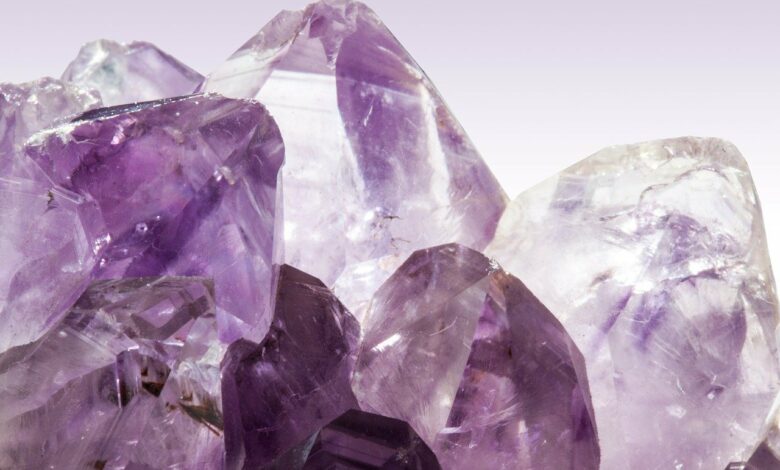Which are the Most Important Underground Resources in Turkey?

As a country with rich underground resources, Turkey has reserves of important minerals in the world. Gold, natural stones, boron, trona, uranium and thorium are listed as the most important underground resources of Turkey. You can find more detailed information about these underground resources in the continuation of the article.
Most Important Resource | Gold

Gold has been one of the most sought after metals with its value since ancient times. Exploration studies in Turkey and ongoing gold deposits are mostly found in Aegean, Western Anatolia, Eastern Black Sea and Eastern Anatolia regions. Based on the geological structure and gold formation models in the world, the gold potential in Turkey is estimated to be around 6,000-7,000 tons.
Gold in Turkey is Bergama and Ovacık in İzmir, Havran in Balıkesir, Mastra in Gümüşhane, Salihli and Sart in Manisa, İliç in Erzincan, Sivrihisar in Eskişehir, Kocasinan in Kayseri and Eşme and Kışladağ in Uşak. Turkey ranks fifth in the world in gold demand.
The Beautiful Underground Resources | Natural Stones

Due to its geological structure, Turkey has a rich potential in terms of natural stones. According to the available data, there are 4 billion m3 of marble, 2.8 billion m3 of travertine and 1 billion m3 of granite reserves. According to these figures, Turkey has about 40% of the total natural stone reserves in the world.
Researches in Turkey show that there are approximately 650 marbles of different colors and textures in the country. Primary natural stone products are crystal limestone (marble), limestone, onyx, conglomerate, breccia and rocks of igneous origin (granite, syenite, diabase, diorite, antigorite, etc.). The marble types produced in Turkey and best known in the international market are listed as Süpren, Elazığ Cherry, Akşehir Black, Manyas White, Bilecik Beige, Tiger Skin, Denizli Travertine, Aegean Bordeaux, Milas Lilac, Gemlik Diabase and Afyon Sugar.
The Turkish Gold | Boron (Underground Resources in Turkey)
Boron minerals are natural compounds containing different amounts of boric oxide (B2O3) in their structures. Boron minerals commonly found in Turkey are tincal, colemanite and ulexite. These minerals are first enriched by physical processes to obtain concentrated boron products, and then they are converted into various refined boron products by chemical processes.
Boron compounds are used in many fields such as glass industry, agriculture, chemistry, fuel and detergent industry, ceramic and polymeric materials, metallurgy, nano-technology, automotive and energy industries, electronics and communication industries, space and aircraft vehicles, nuclear applications, military vehicles. Turkey produces the highest refined boron products in the world.
The most important boron reserves in the world are located in Turkey, USA, Russia and South America. All known boron deposits of Turkey are in Western Anatolia, especially; It is located in Eskişehir-Kırka, Kütahya-Emet, Bursa-Kestelek and Balıkesir-Bigadiç regions. Turkey has a total of 3.3 billion tons of boron reserves. This is equal to 73% of the total world reserves and ranks first in this regard. In 2019, approximately 60% of the world boron demand was met by Turkey.
You may interested : What Numbers Should be Called at Emergency Cases in Turkey?
Uranium and Thorium

Today, uranium and in the near future, thorium are included in the raw materials of nuclear energy. The search for uranium in Turkey continued until the end of 1990 and a total of 9,129 tons of proven uranium reserves were found in five different areas. Their average grade and reserves are within the economic limits accepted in the years they were discovered. Today, however, these values are considerably lower than these limits. This is due to significant changes in nuclear power plant planning in recent years and especially the presence of high-grade uranium fields with very low production costs in Canada and Australia.
In Turkey, as a result of the studies carried out by the General Directorate of Mineral Research and Exploration in previous years, 380,000 tons of visible reserves with an average of 0.2% ThO2 grade were detected in the complex ore Eskişehir – Sivrihisar – Kızılcaören field containing rare earth elements and thorium. However, the technological problems related to enrichment of thorium in this area have not yet been fully resolved.
Trona
Trona ore is the most common of the soda minerals found in nature. It is the basic raw material used in the production of soda ash. It is also known as “sodium carbonate” or “natural soda”. In addition to approximately 250 million tons of reserves in Beypazarı district near Ankara, approximately 650 million tons of reserves were identified in Ankara’s Kazan and Sincan districts in 2007. Turkey ranks second in the world in this regard with a total of 873 million tons of reserves.






